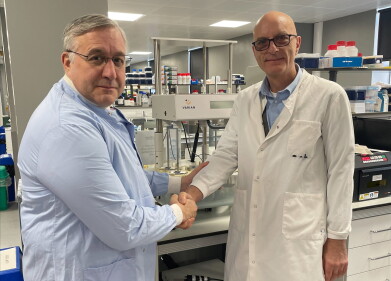News
Why Is Microbiology Important?
Jul 03 2015
Microorganisms can be found in almost every natural element on the planet. The lives of humans, plants and animals are all intrinsically linked to the microbes that continually recycle key nutrients such as carbon and nitrogen, degrade organic matter and shape our day to day existence.
Want to know more about microbiology and the integral role it plays in our day to day lives? Read on for an overview of what it is, and why it matters.
What is microbiology?
Put simply, microbiology is the study of microorganisms. These include bacteria, protozoal parasites, viruses and fungi. Such organisms are so minute that they can only be viewed through a microscope. Yet while they may be invisible to the naked eye, microbes have a huge influence on the way we experience life. Scientists estimate that there are 5 million trillion, trillion microbial cells currently in existence on Earth. And no, that’s not a typo. 5 million trillion, trillion! In total, the amount of carbon held in these cells equates to that of every living plant on the planet.
Why does it matter?
Sure, the statistics behind microbes are mind-blowing but do they really matter? The answer is yes! Microorganisms affect the world in a myriad of different ways, some of which are outlined below.
- Keeping the planet healthy
Microbes are essentially protectors of the planet, ensuring that minerals such as carbon and nitrogen are incessantly recycled. They play a crucial role in keeping the atmosphere oxygenated and also actively degrade dead organic matter, thus transforming organic carbon back into carbon dioxide.
- Agriculture
When it comes to creating soils that can support crops and livestock, microbes are indispensable Studying microbiology helps farmers to optimise nitrate levels and maximise output.
- Combating disease
Infectious diseases have the capacity to wipe out entire populations, and microbiology is the key to keeping outbreaks under control. The study of microscopic organisms allows scientist to develop antibiotics and vaccines, with revelations such as Alexander Flemming’s discovery of penicillin saving millions upon millions of lives.
- Chemical products
From antibiotics and solvents to preservatives and pharmaceuticals, microbes are used to create a myriad of useful products that we take for granted. Uncovering these chemical reactions and retailing them as commercial goods shapes the face of life as we know it.
- Biotechnology
Genetic engineering is an incredibly exciting revelation, and microbiology lies at the heart of the sphere. The scientific process of freely moving genes from one organism to another, isolating DNA and manipulating results is all hosted by bacteria.
Microbiology has come a long way since it was first pioneered by Dutch draper and hobbyist glass grinder Antonie Van Leeuwenhoek in the 17th century. ‘A ‘Dyeing’ Art in Microbiology’ explores how the “Father of Microbiology" led us to discover the staining methods currently used in cytology, histology, haematology, microbiology and parasitology,
Image via Wikipedia
Digital Edition
Lab Asia 32.2 April
April 2025
Chromatography Articles - Effects of small deviations in flow rate on GPC/SEC results Mass Spectrometry & Spectroscopy Articles - Waiting for the present to catch up to the future: A bette...
View all digital editions
Events
Apr 09 2025 Tokyo, Japan
Apr 22 2025 Hammamet, Tunisia
Apr 22 2025 Kintex, South Korea
Analytica Anacon India & IndiaLabExpo
Apr 23 2025 Mumbai, India
Apr 23 2025 Moscow, Russia



















